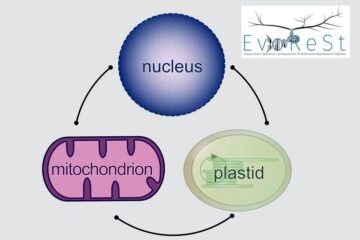C3bot peptides as drugs for the treatment of traumatic or degenerative neuronal injury

There is a strong need for drugs which induce neurites specifically – and, at the same time are suitable for long term application. Peptide fragments of the C3 exoenzyme of Clostridium botulinum have been found to have neuritogenic effects on neurons as well as regenerative properties in an animal model (mouse). The peptides represent promising drug candidates for the treatment of neurodegenerative disorders such as Morbus Alzheimer, Parkinson, Huntington chorea but also for spinal cord injury and traumatic brain injury.
Whereas a 26mer peptide stimulates both, dendritic and axonal growth, a 15mer peptide selectively promotes axonal growth. Therefore the 15mer may be the drug of choice, if regeneration in a complex network is demanded, when false synaptic contacts have to be avoided. Such conditions arise from traumatic brain injuries. Both, the 15mer and the 26mer peptide trigger a strong transient activation of RhoA which mimics the physiological conditions of RhoA activation / inactivation cycles. These properties make the peptides suitable for repeated administration and long term treatments. As the peptides only act on neurons and not on microglia or astrocytes, there is no risk for neuronal inflammation or glia scar formation.
Weitere Informationen: PDF
ipal GmbH
Tel.: +49 (0)30/2125-4820
Ansprechpartner
Dr. Dirk Dantz
Media Contact
Alle Nachrichten aus der Kategorie: Technologieangebote
Neueste Beiträge

Neuartiges Material für nachhaltiges Bauen
Innovativer Werkstoff für eine energieeffiziente Architektur: Forschende des Karlsruher Instituts für Technologie (KIT) stellen in der aktuellen Ausgabe der Fachzeitschrift Nature Communications ein polymerbasiertes Material mit besonderen Eigenschaften vor. Das…

Neues Antibiotikum gegen Erreger der Flussblindheit und Lymphatischen Filariose
Prof. Achim Hoerauf, Direktor des Instituts für Medizinische Mikrobiologie, Immunologie und Parasitologie des Universitätsklinikums Bonn (UKB), und seinem Team ist es in Kollaboration mit der Abteilung Pharmazeutische Technologie und Biopharmazie…

Evolutionäre Genomik: Folgen biodiverser Fortpflanzungssysteme
Die Deutsche Forschungsgemeinschaft (DFG) fördert die Einrichtung eines neuen Graduiertenkollegs (GRK) in der Biologie an der Universität Göttingen. Das GRK mit dem Titel „Evolutionary Genomics: Consequences of Biodiverse Reproductive Systems…

















